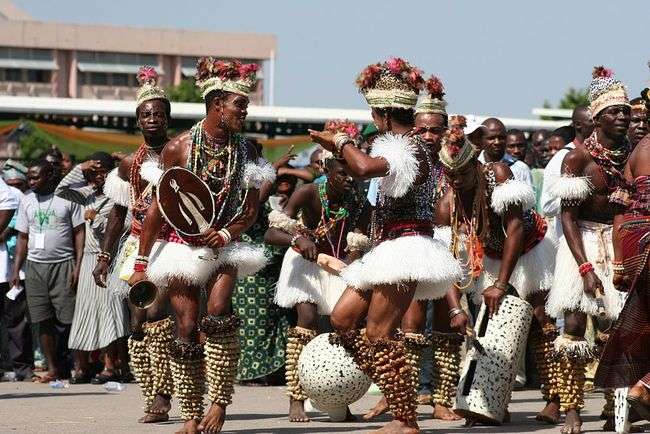Guides
Mind blowing Facts About Eastern Nigeria
The Eastern Region was an administrative region in Nigeria, dating back originally from the division of the colony Southern Nigeria in 1954. Its first capital was Calabar. The capital was later moved to Enugu and the second capital was Umuahia. The region was officially divided in 1967 into three new states, the East-Central State, Rivers State and South-Eastern State. East-Central State had its capital at Enugu, which is now part of Enugu State.

Introduction
The Eastern Region is an administrative region in Nigeria, dating back originally from the division of the colony Southern Nigeria in 1954. Its first capital was Calabar. The capital was later moved to Enugu and the second capital was Umuahia. The region was officially divided in 1967 into three new states, the East-Central State, Rivers State and South-Eastern State. East-Central State had its capital at Enugu, which is now part of Enugu State.
The region had the third-, fourth- and fifth-largest indigenous ethnic groups including Igbo, Ibibio and Ijaw. It was what later became Biafra, which was in rebellion from 1967 to 1970.
The Eastern region had an ethnically diverse population. The largest ethnic group in the region were the Igbos. The traditional society of the Igbos was democratic and individualistic with titles, wealth and age being the primary determinants of prestige.
During colonial rule, the Igbos spread to other regions of British West Africa, first working as traders and labourers and then establishing small-scale businesses in Lagos and other urban districts. The Ibibios and Efiks lived in the districts of Uyo, Opobo, Calabar, Enyong, Eket, Creek Town, Duke Town, Old Town and Ikot Ekpene.
During pre-colonial and colonial rule, the Efiks controlled trading post up the Cross River to the Ports of Calabar. The other ethnic groups of the Niger Delta system include the Ijaw-speaking people of Opobo, Bonny, Degema, Okrika, Buguma, Brass and Abonnema. The Ijaws had a marked chieftaincy tradition. Other groups within the region were the Annang of Ikot Ekpene, Yakurr, Bahumono, Oron, Ogoni and Ekoi.
Mind-blowing facts about Eastern Nigeria
1. Between 1954 & 1964, Eastern Nigeria was described as the fastest-growing economy in the world by Harvard Reviews. Faster than China, Singapore and the “Asian Tigers”.
2. The Eastern govt was the only government in the world that invested 45% of its revenues in Education.
3. The Eastern Region had the biggest Electricity Supply. Best Hospitals And The Igbos made up 60% Of Nigerian Civil Service
4. Eastern Nigeria had the highest number of Registered Cars in Nigeria as of 1963 by a large margin.
5. The Number of Registered Businesses in Nigeria as of 1963 was as follows.
East – 68,220
West – 5776
North – 2407.
6. All the progress Eastern Nigeria made was destroyed during the Civil War and they haven’t recovered ever since.
(Credit: Modernisation And Politics Disintegration: Nigeria And The Igbo By Paul Anber)
The Igbo may be grouped into the following main cultural divisions: northern, southern, western, eastern or Cross River, and northeastern. Before European colonization, the Igbo were not united as a single people but lived in autonomous local communities. By the mid-20th century, however, a sense of ethnic identity was strongly developed, and the Igbo-dominated Eastern region of Nigeria tried to unilaterally secede from Nigeria in 1967 as the independent nation of Biafra. By the turn of the 21st century, the Igbo numbered some 20 million.
Most Igbo traditionally have been subsistence farmers, their staples being yams, cassava, and taro. The other crops they grow include corn (maize), melons, okra, pumpkins, and beans. Among those still engaged in agriculture, men are chiefly responsible for yam cultivation, women for other crops. The land is owned communally by kinship groups and is made available to individuals for farming and building. Some livestock, important as a source of prestige and for use in sacrifices, is kept. The principal exports are palm oil and palm kernels. Trading, local crafts, and wage labour also are important in the Igbo economy, and a high literacy rate has helped many Igbo to become civil servants and business entrepreneurs in the decades after Nigeria gained independence. It is notable that Igbo women engage in trade and are influential in local politics.
Except for the northeastern groups, the Igbo live in rainforest countries. Most Igbo occupy villages of dispersed compounds, but in some areas villages are compact. The compound is typically a cluster of huts, each of which constitutes a separate household. Traditionally, the village was usually occupied by a patrilineage (Umunna).
Before the advent of colonial administration, the largest political unit was the village group, a federation of villages averaging about 5,000 persons. Members of the group shared a common market and meeting place, a tutelary deity, and ancestral cults that supported a tradition of descent from a common ancestor or group of ancestors. Authority in the village group was vested in a council of lineage heads and influential and wealthy men. In the eastern regions, these groups tended to form larger political units, including centralized kingdoms and states.
Conclusion
Traditional Igbo religion includes belief in a creator god (Chukwu or Chineke), an earth goddess (Ala), and numerous other deities and spirits as well as a belief in ancestors who protect their living descendants. Revelation of the will of the deities is sought by divination and oracles. Many Igbo are now Christians, some practising a syncretic version of Christianity intermingled with indigenous beliefs.
More Articles on RNN
Top 10 Richest Igbo Celebrities (2023)
Nollywood Actress Iyabo Ojo’s Igbo Lover Unveiled
The 10 Most Popular Igbo Foods (2022)
Top Great Igbo Leaders That Have Led Since The Emergence of Nigeria
Destiny Etiko Net Worth, Biography, Age, Boyfriend, Movies and Children
